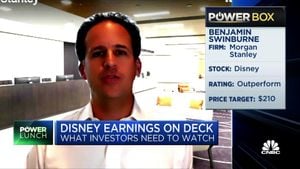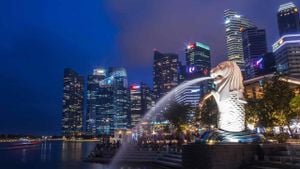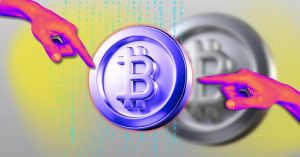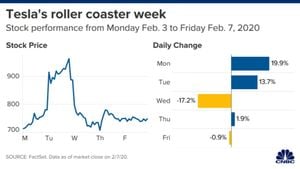Donald Trump's hush money case has taken yet another turn, with the former president's legal team pushing for the dismissal of the jury's guilty verdict just days before he’s scheduled to take office again. Manhattan prosecutors recently expressed their intent to contest Trump's conviction stemming from alleged hush money payments to silence potential scandals during his 2016 presidential campaign.
Trump is currently facing 34 felony counts of falsifying business records, primarily related to payments made to adult film actress Stormy Daniels, which prosecutors argued were made to obscure damaging information about his personal life as he ran for the presidency. The payments, totaling $130,000, were made by Trump through his then-attorney, Michael Cohen, as part of what prosecutors called a 'catch and kill' strategy to prevent any potentially damaging stories from surfacing during his campaign.
According to reports, Trump's attorneys, Todd Blanche and Emil Bove, filed claims citing constitutional provisions and the Presidential Transition Act of 1963 as grounds for immediate dismissal. They argued this legal action would help facilitate the orderly transition of executive power following Trump's recent election victory. This plea also involved requests for Judge Juan Merchan to set specific deadlines for filing related documents, as federal prosecutors are said to be considering dismissing criminal charges against Trump.
While Trump’s defense insists this case should be thrown out to prevent potential disruptions during the transition, Manhattan prosecutors have countered their assertions by emphasizing their belief in the validity of the verdict. They, nonetheless, acknowledged the possibility of delaying Trump’s sentencing—originally set for November 5—up to four years, coinciding with the duration of his upcoming presidential term.
Legal experts have pointed out the unprecedented nature of Trump's situation as he navigates being the first former president convicted of crimes. If sentenced, he could face up to four years behind bars; yet, speculation among legal analysts suggests he might receive probation due to his lack of prior criminal convictions.
Trump's connection to various hush money payments extends beyond just Daniels. During the same time frame, other individuals, including former Playboy model Karen McDougal, were compensated $150,000 to remain silent about their alleged affairs. A payments saga stretches even to Dino Sajudin, who got $30,000 to quash rumors about Trump fathering a child out of wedlock. These transactions have painted a complex picture of how Trump allegedly manipulated narratives to maintain his public image.
Following the jury's guilty verdict—a monumental moment for any president—the legal storm around Trump intensifies as he orients his administration anew. His defense aims to assert attributes of presidential immunity, following recent Supreme Court decisions affirming protections for former presidents related to acts performed during their terms. They argue this precedent should apply to Trump's case, thereby nullifying the charges against him.
Yet, as the legal tug-of-war persists, questions arise about the underlying motivations driving the prosecution's case against Trump and the potential ramifications for future presidential accountability. Trump's camp has deemed this trial as part of the "witch hunt" narrative, arguing it's colored by political motivations from his adversaries.
Trump himself has characterized the allegations as unfounded, framing them as attacks against him and his supporters. During public appearances, he referred to the trial process as indicative of broader patterns of unfairness and bias within the justice system, bolstering support from his base, which remains largely sympathetic to his plight.
Among the legal ramifications facing Trump, should the trial proceed, is the potential for significant media scrutiny—an aspect Trump faced during his previous election campaigns. The intersection of money, power, and politics raises questions about integrity within the electoral process, and how controversies are wielded against candidates during pivotal campaign periods.
The media coverage surrounding Trump has significantly influenced public perception, often highlighting the dramatic particulars of court proceedings against him. The narrative surrounding his hush money case poses broader questions about ethical governance and the responsibilities of elected officials.
For many, Trump's legal entanglements represent not merely personal challenges but reflections of the political zeitgeist. The Trump Administration unlocked new conversations around presidential conduct and the workings of campaign strategies, testing the judicial system's capacity to manage such unprecedented events.
Looking forward, the resolution of this case holds potential precedent-setting implications for those occupying executive roles. The outcome could redefine the boundaries of legal accountability for public figures wielding substantial power, as future candidates may well gauge their strategies against the realities unveiled during Trump's reign.
Trump's defenders and critics alike await the next steps, eager to see how the legal battles intertwine with his political ambitions. With impeachment procedures, court appearances, and public rallies all becoming part of the fabric of Trump's narrative, one must wonder what lies ahead for the former president as he seeks to reclaim his place on the national stage.
The legal antics surrounding Trump's hush money case encapsulate just how much has changed within American politics—a volatile blend of activism, legal scrutiny, and relentless media helicoptering. Each chapter invites scrutiny and intrigue, beckoning both supporters and detractors to reflect on what this means for future elections.



